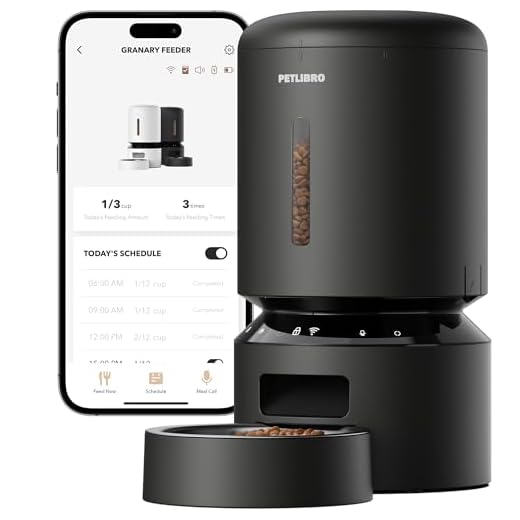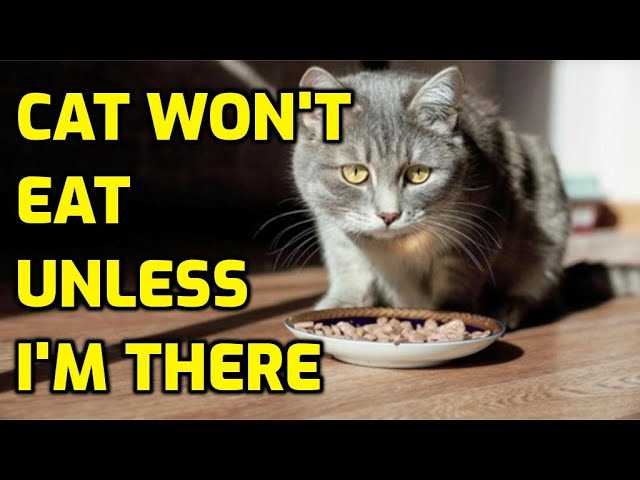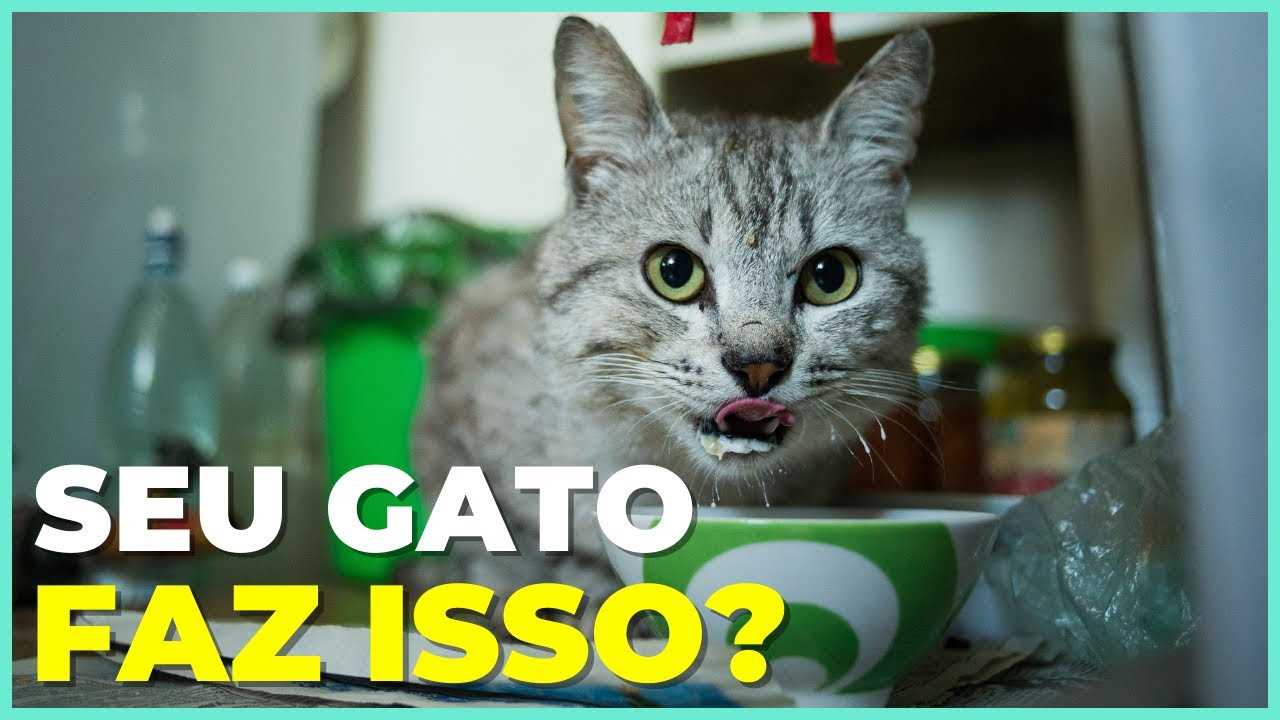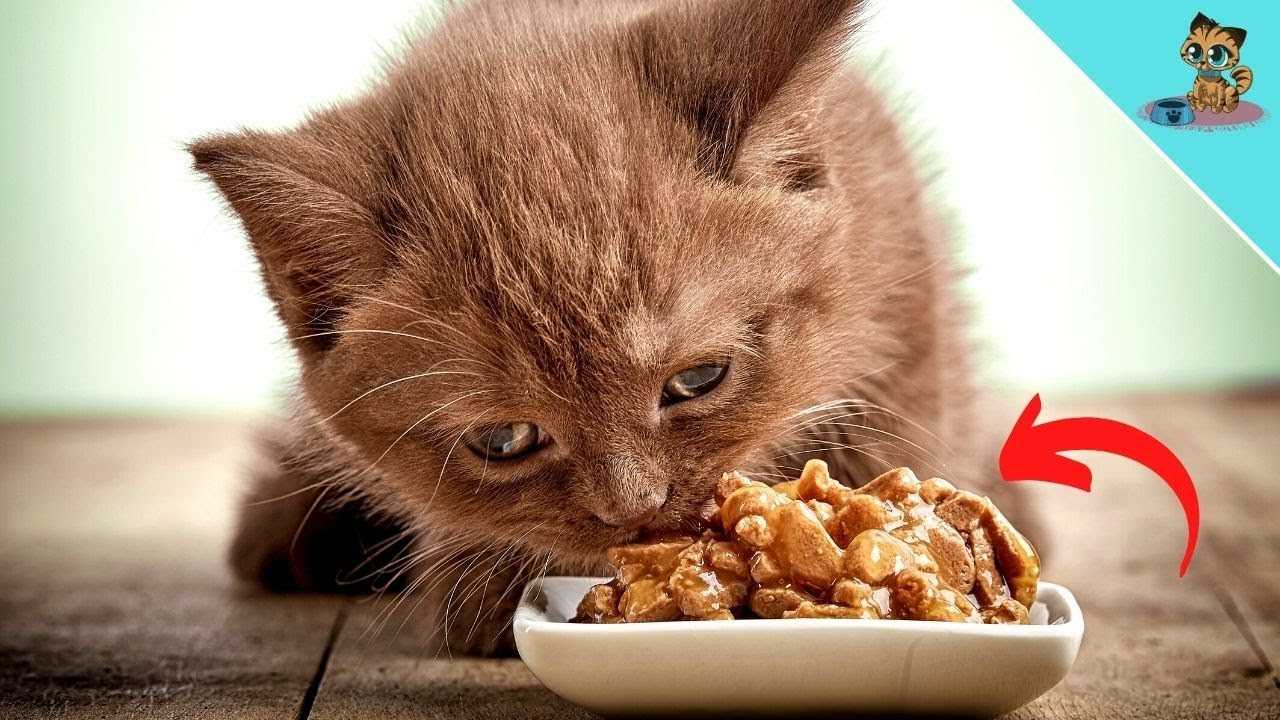



When I munch on my favorite kibble, it’s not just about satisfying hunger. I crave an audience. Observing my dining ritual provides a sense of safety and companionship. Knowing someone is near reassures me while I indulge in my meal.
It’s interesting how my ancestors relied on group dynamics for survival. Watching me consume food can trigger instinctual behaviors in humans, evoking a desire to protect and nurture. This bond reinforces our connection, making me feel valued in our shared space.
The act of eating transforms into a performance, where every crunch and nibble becomes a part of my show. Your gaze fuels my confidence, enhancing the experience. It’s not merely about the food; it’s about the togetherness we share during these moments.
Next time I dig into my bowl, pay attention. Your presence means the world to me, turning a simple meal into a cherished memory.
The Role of Trust in Feline Feeding Behavior
Trust is the foundation of my dining experience. When I consume my meal in your presence, it signifies a level of comfort and confidence in my environment. This connection allows me to relax, knowing I’m safe from potential threats. The closer you are, the more at ease I feel while indulging in my favorite treats.
Social Bonding Through Shared Moments
Engaging in this ritual strengthens our bond. Your attention during my mealtime creates a shared experience that reinforces our relationship. I appreciate your presence, as it signifies that I am valued and cared for. This social interaction is as satisfying as the food itself, enhancing my overall well-being.
Observational Learning and Safety
Your watchful eye provides reassurance. By being nearby, you help me remain vigilant against any lurking dangers. I observe your reactions and behaviors, which guide my own instincts. This dynamic plays a crucial role in my feeding habits, as I learn to distinguish between safe and unsafe situations while enjoying my meals.
How Social Dynamics Influence Eating Habits in Cats
Understanding the impact of social interactions on feeding rituals is key. When sharing a living space with other felines, hierarchy and territoriality emerge, affecting how meals are approached. Observing their behavior during feeding times reveals patterns that suggest a complex social structure.
Hierarchical Influences
In multi-cat households, dominant individuals often assert control over food resources. This can lead to stress for submissive companions, prompting them to either eat quickly or avoid meals altogether. It’s advisable to monitor feeding times and provide separate areas for each feline to reduce competition and anxiety. Ensuring that every creature has access to its own food station can establish a more relaxed atmosphere during mealtimes.
Social Feeding Behaviors

Social interactions during mealtime can vary significantly. Some individuals thrive on the presence of others, while others prefer solitude. When observing, notice how they react to one another–do they share space peacefully or display signs of aggression? This insight can guide meal planning. If certain members show distress, consider altering feeding schedules to accommodate their comfort levels. Creating a safe and peaceful environment promotes healthier eating habits.
Lastly, regular engagement in play and social bonding can positively impact overall well-being, leading to more positive dining experiences. Establishing a routine that includes social playtime before meals can encourage a calmer approach to food consumption.
What Body Language Reveals About Your Feline’s Eating Rituals
Observing specific behaviors during meal times can provide clear insights into how I approach my dining experience. Here are key body language cues that indicate my state of mind while I indulge in my food:
- Tail Position: A high, twitching tail shows excitement and confidence during feeding. If the tail droops, it may indicate discomfort or disinterest in the meal.
- Ears Orientation: Forward-facing ears indicate curiosity and eagerness, while pinned-back ears signal stress or wariness, which could affect my eating.
- Paw Movements: Paws kneading or tapping near the food bowl can indicate anticipation and joy. If I’m stepping back or hesitating, it might reflect hesitation or uncertainty.
Vocalizations
Vocal sounds can also hint at my feelings. Soft chirps or purrs while eating suggest contentment, while growls or hisses may mean I feel threatened or possessive over my meal.
Eye Contact
Direct eye contact while munching indicates trust and comfort in the environment. If I glance away frequently or avoid looking towards my human, it might signal anxiety or a need for space.
Understanding these cues can help enhance meals, fostering a relaxed atmosphere that encourages a more enjoyable eating experience.
Understanding the Impact of Environment on Feeding
Creating a conducive atmosphere for meals can significantly enhance the dining experience of felines. Here are specific factors to consider:
- Location: Choosing a quiet, low-traffic area for feeding can help reduce distractions. I prefer my bowl placed away from noise and commotion.
- Timing: Consistent feeding schedules create a sense of security. I thrive on routine and feel more relaxed knowing when my meals are coming.
- Type of Bowl: The material and shape of the dish affect comfort. I enjoy shallow bowls that make it easy to access my food without whisker stress.
- Food Quality: Offering high-quality, palatable options makes every meal enjoyable. I appreciate flavors that are both enticing and beneficial for my health.
- Human Interaction: While I dine, having my favorite human nearby adds comfort. It’s reassuring to see a familiar face while I indulge in my meal.
- Lighting: Bright but soft lighting can enhance the ambiance. I feel more at ease in a warm, inviting environment.
- Environmental Enrichment: Incorporating elements like scratching posts or toys nearby can make the area feel more dynamic, keeping me engaged even during meals.
Maintaining oral health is also essential. Consider integrating products from oral care for cats into the routine to support dental hygiene while enjoying meals.
Every detail in the environment plays a role in how I approach my meals. A tailored space not only satisfies hunger but also nurtures overall well-being.
Signs That Your Feline Companion Seeks Attention While Dining
Pay close attention to mealtime behaviors. If I’m vocalizing more than usual, it might signal a desire for your company while I munch on my food. Soft meows or even chirps can indicate I’m feeling chatty and want you nearby.
Physical Cues

Observe my body language closely. If I’m sitting upright, looking towards you, or even pawing at my bowl, it’s a clear sign I’m seeking your engagement. My tail might be held high, which typically signifies confidence and openness. If I maintain eye contact, it suggests that I feel comfortable enough to include you in this moment.
Behavioral Patterns
Some of us may pause frequently during meals, glancing up to gauge your reaction. This is an indication that I appreciate your presence and perhaps want to ensure my dining experience is shared. If I keep eating but periodically look back at you, it shows I enjoy the company while savoring my food.
Lastly, if I seem to prefer certain spots in the house for my meals, it could be a sign that these areas are where I feel safest and most comfortable with you around. Observing these subtle hints can enhance our bond during meal times. If you’re curious about keeping my dining area clean, check out this link: does a metal pan scrubber work as a kettle de scaler.
How to Create a Comfortable Feeding Experience for Your Cat
Optimize the feeding space by selecting a quiet, low-traffic area. This minimizes stress and distractions, allowing for a more relaxed dining atmosphere.
Feeding Station Setup
Choose elevated or stable surfaces for food and water bowls. This prevents awkward postures and spills. Ensure bowls are made of ceramic or stainless steel, as these materials are safer and easier to clean.
Routine and Environment

Establish a consistent feeding schedule. Regular meal times create predictability, which can be comforting. Adjust the ambiance with soft lighting or calming scents, such as lavender, to promote a sense of security.
| Element | Recommendation |
|---|---|
| Location | Quiet, low-traffic areas |
| Feeding Surface | Elevated or stable surfaces |
| Materials | Ceramic or stainless steel bowls |
| Feeding Schedule | Consistent meal times |
| Ambiance | Soft lighting, calming scents |
Monitor food temperature; serving at room temperature enhances flavor and aroma. Regularly clean the area to maintain hygiene, which also encourages a healthy appetite.
FAQ:
Why do cats seem to prefer being watched while they eat?
Cats are social animals, and they often seek the presence of their owners during various activities, including eating. When a cat eats in front of you, it may feel more secure and comfortable knowing you are nearby. This behavior can also be a sign of trust, as cats are more likely to show vulnerability, such as eating, when they feel safe in their environment. Additionally, some cats may enjoy the attention they receive from their owners while eating, as it can reinforce their bond with you.
Is it normal for cats to want attention while they are eating?
Yes, it is completely normal for cats to seek attention while eating. This behavior can stem from their instinctual need for security and safety. In the wild, cats may prefer to eat in the presence of other cats or their owners to ensure they are safe from predators. When a cat wants you to watch them eat, it may be a way of including you in their daily routine and asserting their comfort in your company. This can help strengthen your relationship with your pet, as it shows they value your presence.
Could a cat’s desire for you to watch them eat indicate something about their personality?
Absolutely! A cat’s desire for you to watch them eat can reveal a lot about their personality. For instance, more social and confident cats might enjoy the attention and interaction, viewing it as a way to bond with you. On the other hand, a more reserved cat may only seek your presence when they feel particularly safe and secure. Observing how your cat behaves during mealtime can give you insights into their comfort level and attachment to you. Each cat has a unique personality, and their eating habits can reflect those traits.
How should I respond if my cat wants me to watch them eat?
If your cat wants you to watch them eat, it’s usually a good idea to oblige if you have the time. Sitting nearby while they eat can provide them with a sense of security and reinforce your bond. You can also use this opportunity to observe their eating habits and ensure they are eating properly. However, if your presence seems to distract them or if they appear anxious, it might be better to step back and let them enjoy their meal in peace. Each cat is different, so pay attention to their cues and adjust accordingly.








